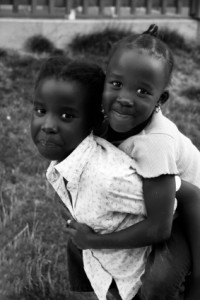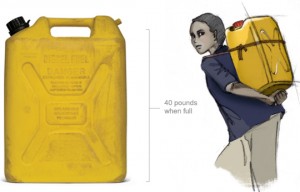 Let there be work, bread, water and salt for all.
Let there be work, bread, water and salt for all.
Nelson Mandela
Now. Today. At this very moment , almost a billion people on the planet don’t have access to clean, safe drinking water. That’s one in eight of us.
1 in 8
As you go through your day I want you to pretend you are back in middle school gym class. The big hairy teacher steps up and ask you to count off into groups of 8.
1. 2. 3. 4. 5. 6. 7. 8
The haves and the have-nots. Those with acess to clean, safe drinking water and those without.
In Africa , people spend 40 billion hours every year just walking for water. Walking for water. Not in school studying or at work, not finding a cure for cancer or caring for a parent. Not worshipping, or praying. I want to weep when I think of the potential lost, think of whats not done because of the need to walk miles for water. Let’s be honest, we in the west do not have to walk 400 hours a year for anything. If we walk 40 hours a year for access to clean water I would be shocked. What would happen if every westerner spent one day without easy access to water?
1. 2. 3. 4. 5. 6. 7. 8
Those 40 billion hours are being walked by women and children. Mostly women and girls. Women and children bear the burden of water collection for the family. They walk miles to the nearest source day in and dayout. All of this walking is most likely leading them to sources that are unprotected and likely to make them sick.
1.2.3.4.5.6.7.8
Walking for water, and the resulting diseases keeps kids from school. Hauling cans of water for long distances takes a toll on the spine and many women experience back pain early in life. A well nearby means more than safe drinking water to women and children in developing nations; it means time, freedom and opportunity. It means improvement of their families’ lives. It means kids can earn their education and build the future of their communities.
1.2.3.4.5.6.7.8
90% of the 42,000 deaths that occur every week are to children under five years old. Unsafe water and lack of basic sanitation cause 80% of diseases and kill more people every year than all forms of violence, including war. Children are especially vulnerable, as their bodies aren’t strong enough to fight diarrhea, dysentery and other illnesses. Many of these diseases are preventable. The UN predicts that one tenth of the global disease burden can be prevented simply by improving water supply and sanitation
Safe drinking water and hygienic sanitation facilities are basic necessities required for health and for success in the fight against poverty, hunger, child deaths and gender inequality around the world. It is also central to the human rights and personal dignity of every woman, man and child on earth. The next time you turn on the tap for a drink– take a moment and send a prayer to billion of people who do not have access.
Then take action and do what ever you can to help others have this basic human right.


